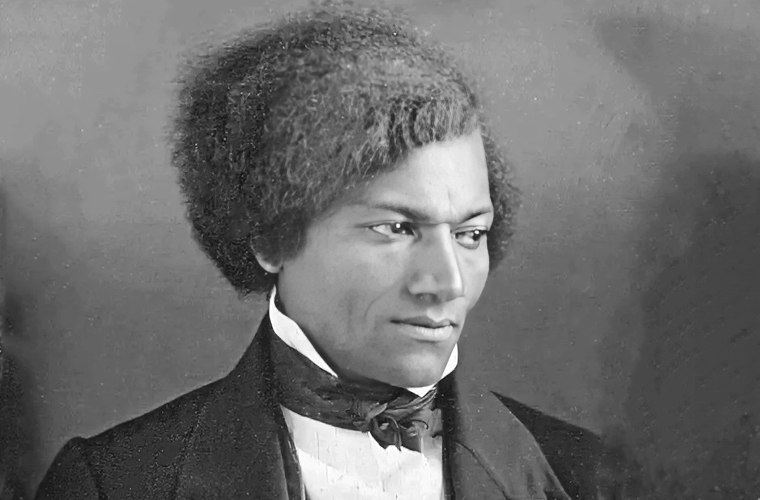Frederick Douglass was a prominent African American social reformer, abolitionist, orator, writer, and statesman. He was born into slavery in Talbot County, Maryland in 1818, but through his remarkable intellect, determination, and courage, he escaped from bondage and went on to become one of the most influential figures in the fight for the abolition of slavery and the advancement of civil rights in the United States.
Douglass’ early life was marked by the brutality and dehumanization of slavery. He endured physical and emotional abuse at the hands of various slave owners, but he never lost his thirst for knowledge and his desire for freedom. In 1838, he successfully escaped from slavery and made his way to New York City, where he found refuge and support within the abolitionist community.
Douglass quickly became known for his powerful oratory skills and his eloquent writing. He became a leading voice in the anti-slavery movement, delivering impassioned speeches and publishing influential works such as his autobiography, “Narrative of the Life of Frederick Douglass, an American Slave,” which exposed the horrors of slavery and galvanized support for the abolitionist cause. In addition to his work as an abolitionist, Douglass was also a fervent advocate for women’s rights. He believed strongly in the equality of all people, regardless of race or gender, and he worked tirelessly to advance the cause of women’s suffrage and equal rights.
During the Civil War, Douglass played a crucial role in recruiting African American soldiers to fight for the Union cause. He also advised President Abraham Lincoln on issues related to emancipation and the recruitment of black troops. After the war, he continued to be a prominent voice for civil rights and social justice, advocating for equal rights for African Americans and working to ensure that the promises of emancipation and Reconstruction were fulfilled. In 1872, Douglass became the first African American nominated for Vice President of the United States as Victoria Woodhull’s running mate on the Equal Rights Party ticket. Although he did not win the election, his nomination was a groundbreaking moment in American politics.
Throughout his life, Douglass remained committed to the pursuit of justice and equality. He served in various government positions, including as U.S. Marshal for the District of Columbia and as Minister Resident and Consul General to Haiti. He continued to speak out against injustice and inequality until he died in 1895.
Frederick Douglass’ legacy is one of courage, resilience, and unwavering dedication to the cause of freedom and equality. His contributions to the abolitionist movement, the fight for civil rights, and the advancement of democracy continue to inspire people around the world. His words and actions serve as a reminder of the power of individual agency and the importance of standing up for what is right, even in the face of seemingly insurmountable odds.


